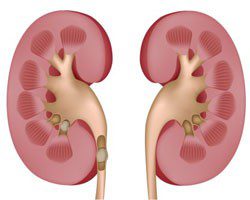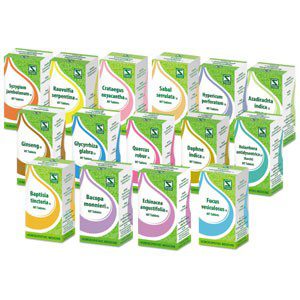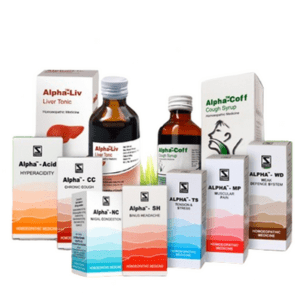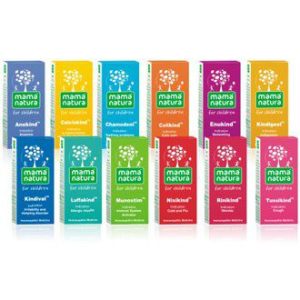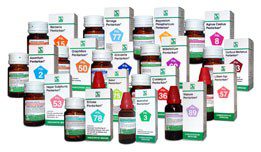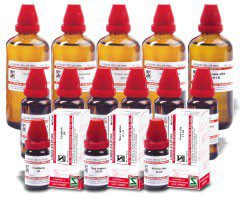Doctors Zone
Journal (JEBH)
Alpha™- Liv Drops
Alpha – Liv Drops Due to high demand from the market, for a formulation in drops for the liver, apart from the syrup already available in the market, Schwabe India developed this product. Introduction The liver plays a key role in metabolism. It has anabolic and catabolic, exocrine and endocrine functions. The liver is a blood reservoir, filter and store of different substances (e.g. glycogen, vitamins). It is the site of serum protein (e.g. albumin, prothrombin, fibrinogen) and enzyme synthesis. Metabolic processes (e.g. bilirubin, hormone, carbohydrate and lipid turnover) and the removal of toxic products are important liver functions. 1 Hepatotoxins (e.g. alcohol, tetracycline, acetaminophen, fungal toxins, and anabolic steroids) can cause specific damage to liver cells. Toxic hepatitis may be clinically silent or severe enough to lead to the rapid development of hepatic failure. Clinical features include hepatomegaly, enzyme abnormalities, fever, abdominal pain, anorexia, nausea, vomiting and weight loss. In patients with underlying cirrhosis, manifestations of portal hypertension may predominate. Aversion to fatty food, abdominal discomfort, nausea and vomiting after meals may be symptoms of 2 cholelithiasis. Jaundice results from accumulation of bilirubin. It has non-hepatic as well as hepatic causes. Hyperbilirubinaemia may be due to abnormalities in the 3 formation, transport, metabolism or excretion of bilirubin. TM Alpha -Liv Drops aids recovery and normalisation of liver functions. Severe liver disease needs specialised treatment. Indications: Slow liver functions, fatty liver, and for supportive treatment of hepatocellular jaundice and toxic liver damage.

Coriandrum sativum – Schwabe News Volume 3 | Issue 4 | August 2012
Schwabe News Volume 3 | Issue 4 | August 2012
Coriandrum sativum
It is a culinary and house hold remedy in India. Commonly known as coriander, it is strongly aromatic. In Indian medicine, it is considered as a stimulant, carminative and stomachic (digestive), diuretic and aphrodisiac. It is a gentle remedy for flatulence, bloating and gripping. Observing its medicinal properties as an herb, Dr. V. T. Augustine had introduced this drug to homoeopathy by publishing his observations in Hahnemannian Gleanings. The present proving was conducted by Louis Klein and Toni Bark with 9 provers.
Mind
Feeling good and relaxed. Mistakes due to forgetfulness and confusion.
Head
Headache with foggy feeling; behind the eyes, frontal region, and changing location.
Nose
Stuffy and congested nose. Soreness and redness in the nostrils.
Face
Rashes especially on the chin and left side. Cracked lips. Dry lips with peeling of skin.
Mouth
Raw, soreness and swelling in the inside of mouth.
Throat
Sore throat with running nose, phlegm from the back of throat, and with swollen tonsils.
Stomach
Nausea in general. Craving for sugar, eggs and warm food.
Female
Menses; prolonged bleeding. Pain in the ovarian region.
Back
Pain in back between shoulder blades. Backache in the lower back; sore and sharp pain; worse bending over, rising from sitting, lifting. Stiffness, soreness and achy of the upper back.
Extremities
Sharp pain in the knee.
Generalities
Very tired and lethargic. Sudden fatigue. Compelled to take nap. Extreme exhaustion and fatigue. Low energy all the day.
Sleep
Sexual dreams; being seduced by others. Dream as if she is pregnant. Dreams about evils, ancient and far away places.
Skin
Intense itching all over the body, sometimes with rashes.
Authority and source: Master Prover: Louis Klein R.S. Hom, Co-Master Prover: Toni Bark MD, Compilation: Janet Levatin MD and Rose Lee. Available from http://www.homeopathycourses.com/wp-content/uploads/2017/08/Coriandrum_Proving.pdf
Recent Advancements in Basic Homeopathic Research – A Report on Two Significant Publication
In a study conducted at the Experimental Farm of the State University of Santa Catarina, Brazil, researchers investigated the impact of homeopathic treatments on piglets during the nursery phase. The study aimed to determine whether homeopathic agents could reduce fighting behavior, improve growth performance, and affect hematological, metabolic, and oxidative variables. The study included 108 weaned piglets divided into four groups: a negative control group receiving only the basal diet, and three groups receiving different homeopathic treatments at varying dosages.
Journal of Evidence Based Homeopathy Volume: 1, Issue: 1, January - June 2023
Comprehensive articles

Agrohomeopathy – A Review
Short cases

Unmasking the Intricacies: A Pyogenic Abscess Case Report

Lichen Simplex: A Singular Case Study

Ranula Unveiled: A Case Report and Management Approach

Lichen Simplex: A Singular Case Study

A Puzzling Presentation: A Case Report of Jaundice
Recent provings and updated materia medica

Acidum Formicum

Mygale

Thea Chinensis
Materia medica on phytohomeopathy

Chrysarobinum

Sanguinarinum nitricum

Thiosinaminum
Mother tincture

Asparagus Officinalis

Ginkgo Biloba

Rosmarinus Officinalis
Product watch

Alpha™- Liv Drops

Good Morning™ Constipation Drops

Zauber™ Hair Drops
Research News











